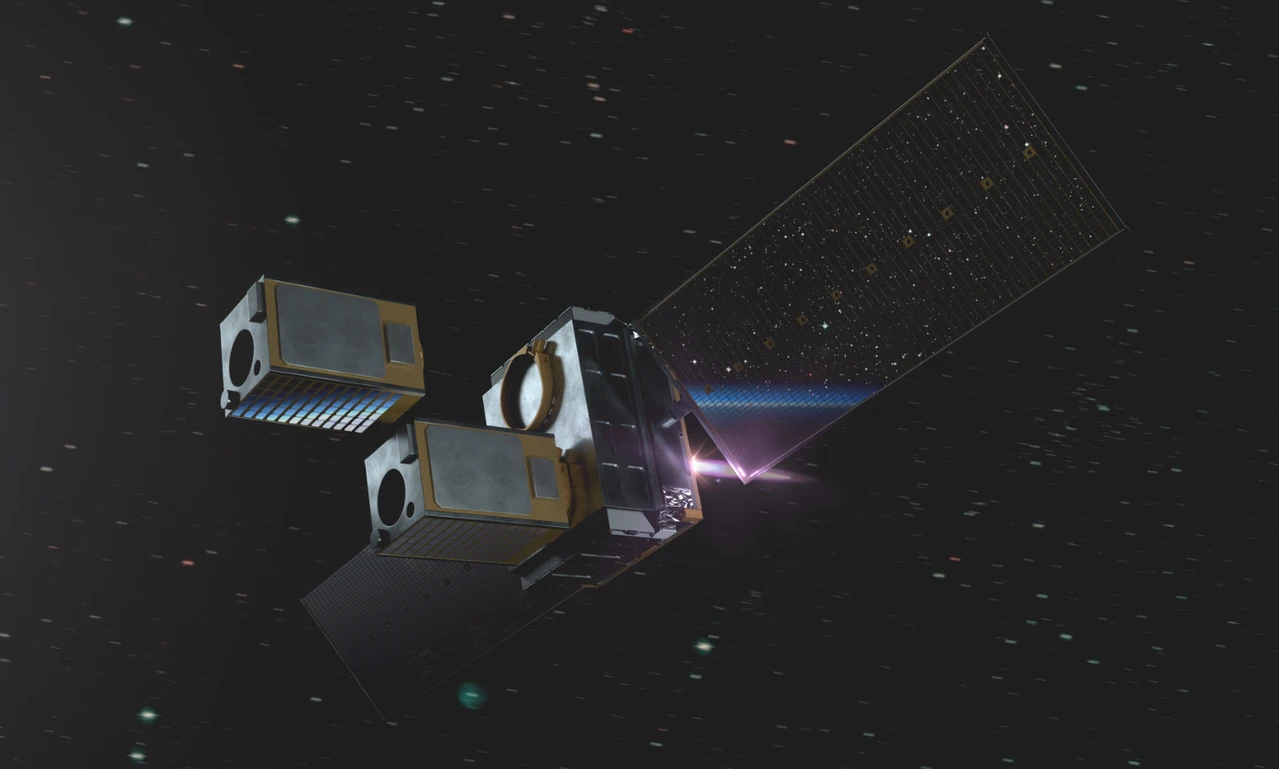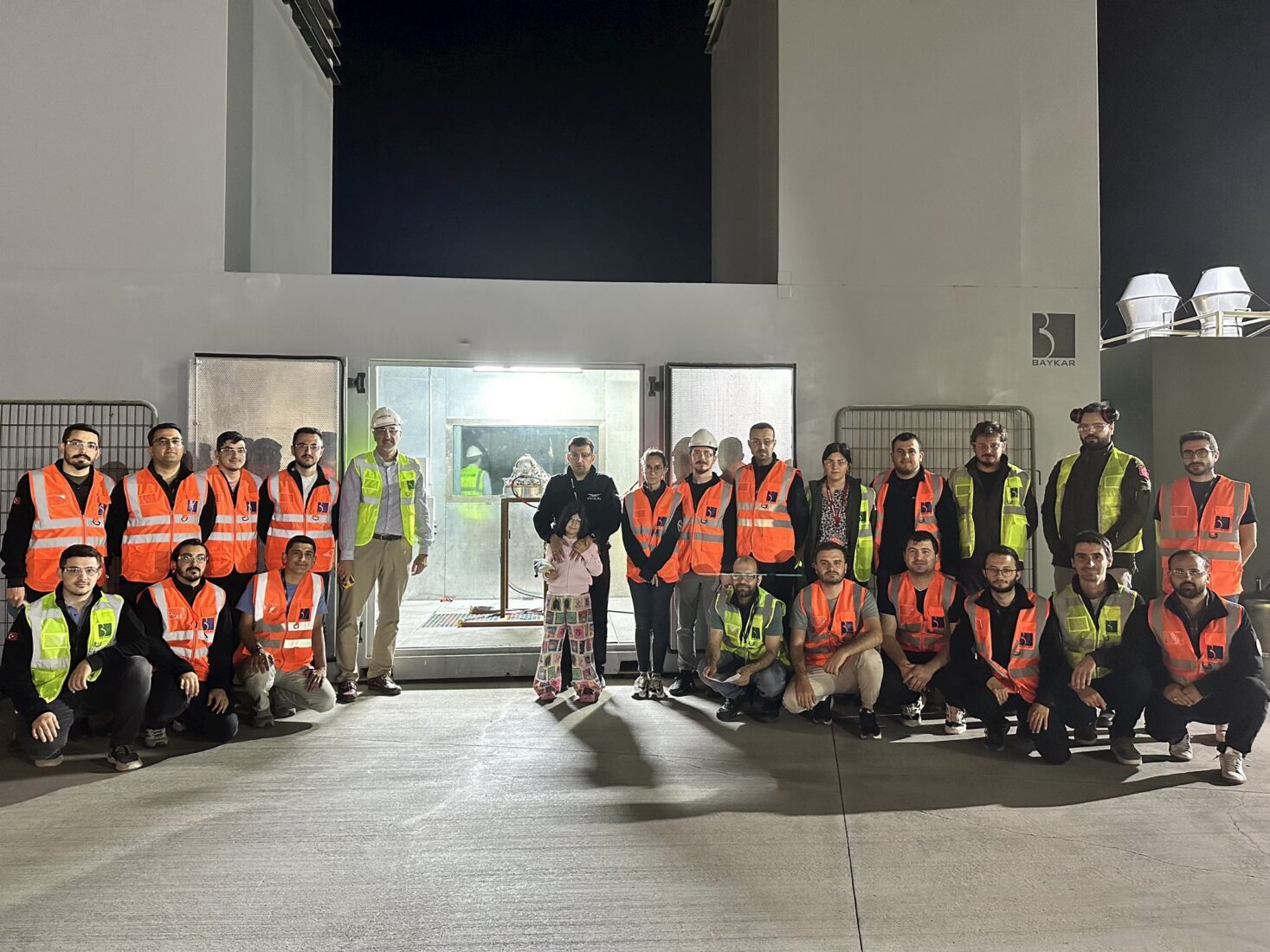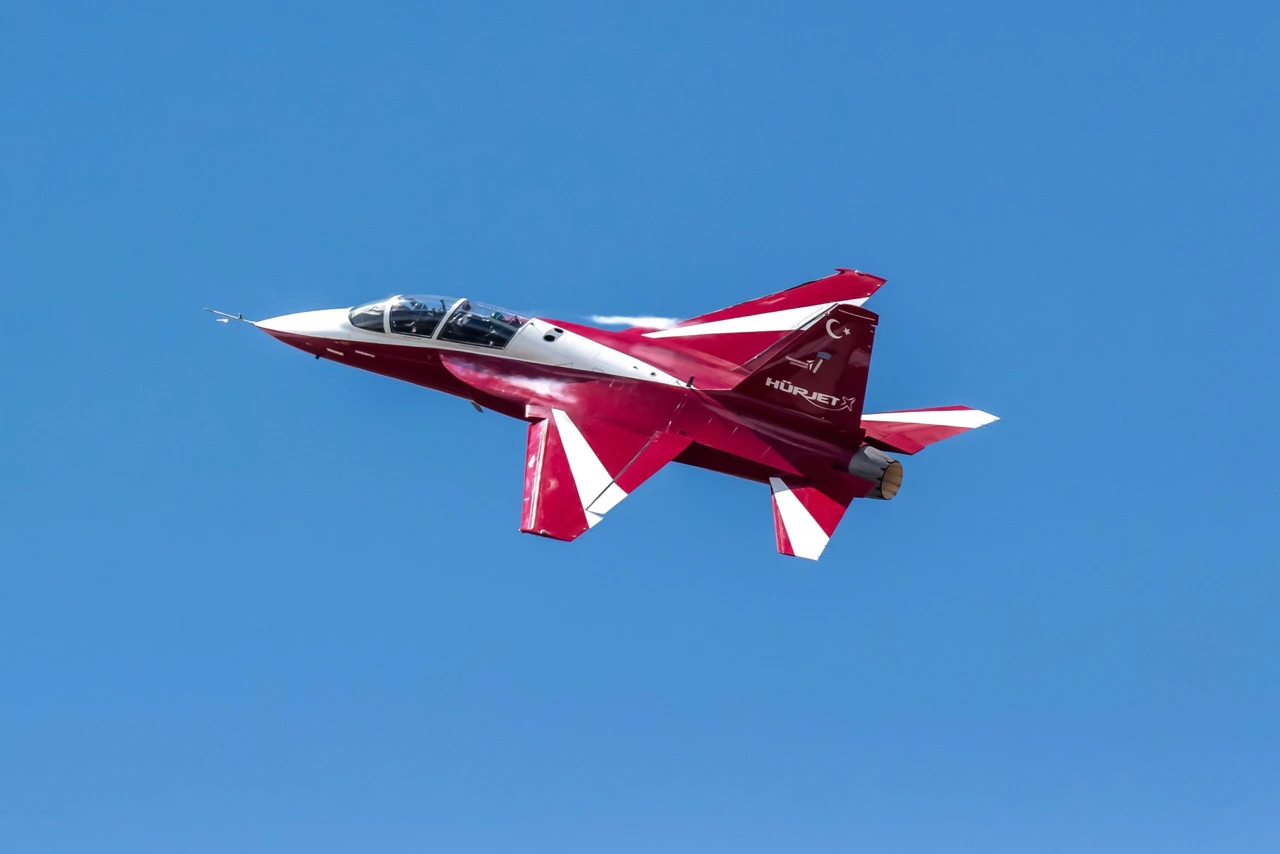Turkish Fergani Space’s satellite ready for launch
 An illustrated project of Fergani Space, with its CEO, Selcuk Bayraktar (Photo via Fergani)
An illustrated project of Fergani Space, with its CEO, Selcuk Bayraktar (Photo via Fergani)
Selsuk Bayraktar, Chairman of the TEKNOFEST Board and Technology Leader at Baykar, is also well known for his success after Bayraktar TB2 UAVs announced significant progress in Türkiye’s independent global navigation satellite system (GNSS) project.
Speaking during a live broadcast on TRT, Bayraktar provided details on the project spearheaded by Fergani Space, a Turkish space company, emphasizing its strategic importance.
Fergani’s first satellite launch set for 2024
“We are working on a constellation of low-earth orbit satellites that will form the backbone of a new global positioning system,” Bayraktar said, revealing that the project aims to launch around 100 satellites.
“We built our two satellites and were ready for launch, but the launch was postponed. We will launch our first satellite this year.” he added.
Recently Selcuk Bayraktar also said, “Fergani is like Baykar 10 years ago,” Bayraktar said. “We are currently working with a team of 70-80 engineers, focusing on producing low-Earth orbit satellite constellations and launching our first satellite this year. In addition, we are working on orbital transfer vehicles and launch systems.”

Project funded by revenues from Türkiye’s drone industry
Türkiye’s new GNSS project aims to establish a next-generation, independent positioning system, reducing reliance on foreign infrastructure.
The constellation of satellites will play a crucial role in ensuring Türkiye’s technological sovereignty.
“This system will secure our independence in the skies, making it strategically vital for our nation,” Bayraktar added.
Bayraktar highlighted that the project is financed by revenues generated from Türkiye’s successful unmanned aerial vehicle (UAV) sector, demonstrating how advancements in drone technology have paved the way for breakthroughs in space.
Fergani’s goals go beyond just the GNSS project.
The Fergani Space Company aims to deploy 120 satellites by 2030 and is also developing orbital transfer vehicles capable of relocating satellites between different orbits.
Looking further ahead, Bayraktar mentioned plans for constructing 50-ton launch vehicles, showcasing the Türkiye’s long-term vision for space exploration and satellite deployment.



